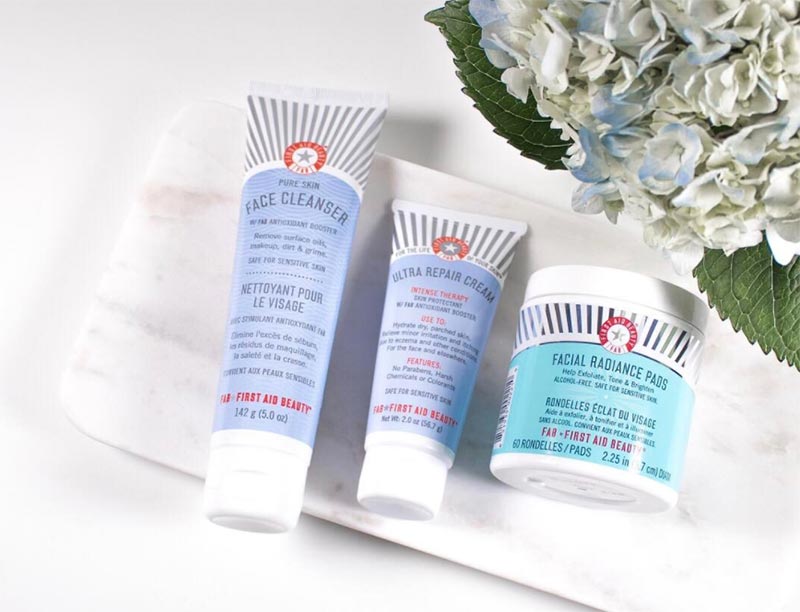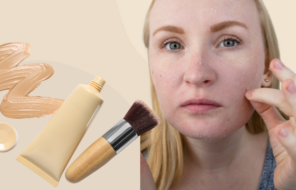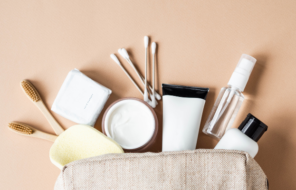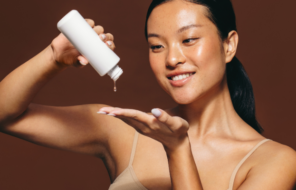Facial cleansers come in all kinds of forms, including gels, creams, and oils to cater the unique needs of every skin type. In this article, I explain what face wash is, and about all the different kinds of facial cleansers.
In this article:
What Are Facial Cleansers?
Facial cleansers are skincare products with the primary purpose of cleaning the face from things like facial sebum (the oil our skin naturally produces), dirt and pollution from throughout the day, and, of course, makeup. Usually they do with the aid of surfactants – chemicals that have the unique ability to bind oil-based things to water-based things.
Gel Facial Cleansers
These are the facial cleansers that you will see most frequently. They come in a tube or pump, and have a gel texture. Once you mix them with water, they become foamy.
Gel face wash is usually made primarily of surfactants (an ingredient that, in facial cleansers, breaks down oils, binds to them, and allows for them to be rinsed away with water), and it is better for those with oilier skin.
However, many gel face washes are made with sodium lauryl sulfate (also known as SLS) – this is a strong surfactant that can over-strip the skin of oil and dehydrate it. If any remnants of it are left on the skin it can be seriously irritating.
Be very careful when choosing a gel-based cleanser that it doesn’t have SLS (at least not in the first few ingredients), or its only marginally less aggressive relative, sodium laureth sulfate.
Soap Cleansers
Whether it’s African black soap, Dr. Bronner’s, or any other soap-based facial cleanser, I have to say no. Stay the heck away. Any soap-based product, whether in bar or liquid form, will have an alkaline pH (usually between 9 and 11, which is absurdly high).
Washing the skin with an alkaline cleanser (that is soap) on a regular basis will totally throw off the skin’s pH, and will make the skin much more susceptible to all kinds of problems, from dehydration to acne, to irritation. Using a pH-adjusting toner (not all toners are pH adjusting!) can mitigate the damage of a soap-based cleanser, but in my opinion, it’s much much better to stick to proper face wash instead.
Mousse Facial Cleansers
Mousse cleansers are facial cleansers with a very creamy foam. They can either come straight out of the pump in foam-form, or they can start off as a gel or cream and then be transformed into a mousse once mixed with water. In the case of the latter, this is actually how most gel cleansers work, so calling them “mousse facial cleansers” is really just a marketing choice.
The true mousse foam cleansers and the gel ones are best for those with normal, combination, and oily skin, while the creamier ones will work well for those with skin that leans towards dryer.

Cold-Cream, Cream, and Balm Facial Cleansers
Personally, this is one of my favorite cleanser options for all skin types, although usually they are most recommended for those with dry, dehydrated, or sensitive skin. Cold creams have the texture of a moisturizer or face cream, but they remove makeup, dirt, oil, and sweat like a dream.
They have had a resurgence in popularity recently, especially from Korean and Japanese beauty brands, although they used to be the go-to face washes back in the early 20th century, when there were no surfactant-based cleansers – only harsh soaps.
While in the old days cold-creams were very alkaline because of ingredients like triethanolamine, these days most of the cream and balm facial cleansers you’ll find emulsify with gentler surfactants, and they are super safe and gentle on the skin.
DIY Oil Cleansers
These are technically not cleansers, because they cannot really be rinsed with water. The oil cleansing method, which you can read about in my article about skin care oils, is actually much more similar to using a makeup remover.
You choose an oil or blend of oils based on your skin type (Protip: mineral oil works for everyone!), use it to melt down your makeup as well as other impurities, and then use a face cloth or muslin to wipe it off. This method can work for just about anyone, assuming they choose the right oil, but if you’re not into feeling oil left on your skin, you might choose to follow it up with a dedicated facial cleanser.
Commercial Oil Cleansers
Store-bought facial cleansers are extremely simple, but are also extremely good for the skin. They are made with the same kinds of oils you might use for an oil cleansing, but a few surfactants are added to the formula.
These surfactants don’t have the job of breaking down oil or makeup – that’s the main oil’s job. Instead, their job is to emulsify the oils in the formula with water, and allow them to be rinsed clean. This makes for an ultra-gentle formula that cleanses without dehydrating or compromising the skin.
These store-bought oil cleansers are ideal for dry, sensitive, or dehydrated skin, but I also wouldn’t hesitate to recommend them to those with oily, combination, or acne-prone skin.
Dry Facial Cleansers
This new innovation is especially popular in the natural beauty circles. Dry cleansers consist of a powder, often made of a mixture of clays, various powders, and a bit of oil and essential oils. In other cases, they are simply made of soap in a powdered form, in which case their pH is too high, and they should be avoided.
They are a fun innovation that is definitely worth trying, and they can work for any skin type. Just keep in mind that they might be a touch more abrasive and exfoliating than more traditional face washes.
Micellar Water
Maybe you’ve heard about micellar water before – micellar waters are both makeup removers and cleansers. They come in liquid form, so all you have to do is saturate a cotton pad with them, and wipe your face to remove the day’s build-up.
They are ultra gentle, so they work for all skin types, although those with sensitive skin might prefer to rinse their face with water after using them (for everyone else, it’s not mandatory).
Micellar water is made with the same kind of surfactants you might see in a gel cleanser, although since micellar water stays on the skin, only the gentlest surfactants are used to make it – you’ll never see SLS in a micellar water formula.
Photo via @firstaidbeauty





